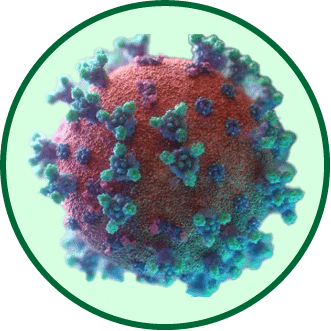Integrating Homeopathy and Respiratory Illnesses: Facts and Misconceptions
Introduction
Homeopathy, a holistic medical system rooted in ancient traditions, has garnered both staunch supporters and skeptics over the years. When it comes to respiratory illnesses, some swear by its efficacy, while others remain dubious. This article offers a balanced exploration of homeopathy in the context of respiratory health, separating fact from fiction.
- A Brief Overview of Homeopathy
- Foundations
- Developed by Samuel Hahnemann in the late 18th century, based on the "like cures like" principle.
- Treatment Approach
- Administers minute doses of substances that, in larger quantities, would produce similar symptoms in a healthy person.
- Potentization
- The unique process of serial dilution and vigorous shaking, believed to increase the remedy's efficacy while eliminating toxicity.
- Homeopathy for Respiratory Illnesses
- Popular Remedies
- Bryonia: Often prescribed for dry cough and chest pain.
- Phosphorus: For chest infections with burning pain and fatigue.
- Aconite: Used in the early stages of sudden respiratory ailments.
- Individualized Treatment
- Homeopaths consider the patient's physical, emotional, and psychological state, aiming for holistic healing rather than symptom suppression.
- Clinical Studies and Efficacy
- Mixed Results
- Some studies suggest benefits in treating respiratory conditions like asthma, while others find no significant effects.
- Placebo Effect Debate
- Skeptics argue that the perceived benefits are largely due to the placebo effect, while proponents believe the healing is genuine.
- Challenges in Research
- The highly individualized nature of homeopathic treatment makes standardized clinical trials difficult.
- Misconceptions Surrounding Homeopathy
- "It's Just Water"
- Critics assert that due to the high dilutions, remedies are merely water. Proponents argue that the potentization process imparts energetic qualities.
- "Homeopathy is Safe Because It's Natural"
- While generally safe, it's crucial to consult qualified practitioners. An incorrect remedy or dosage might exacerbate symptoms.
- "It Can Replace Conventional Medicine"
- Homeopathy can complement, but not always replace, traditional treatments, especially in severe cases.
- Integrating Homeopathy with Conventional Medicine
- Complementary Approach
- Many patients find relief by using homeopathy alongside allopathic treatments, especially for chronic conditions.
- Communication with Healthcare Providers
- It's crucial to inform doctors about any homeopathic remedies being taken to ensure no interactions with prescribed medications.
- Safety and Considerations
- Choosing Qualified Practitioners
- Ensure the homeopath is accredited by recognized institutions.
- Potential for Misdiagnosis
- Relying solely on homeopathy without a proper medical diagnosis can be risky, especially for severe respiratory conditions.
- Inactive Ingredients
- Some remedies contain lactose or alcohol as carriers, which might be problematic for certain individuals.
Conclusion
Homeopathy, with its holistic approach, offers a different perspective on treating respiratory illnesses. While it may not be everyone's cup of tea, many find relief in its gentle methods. As with all medical choices, knowledge, open dialogue with healthcare providers, and careful consideration
